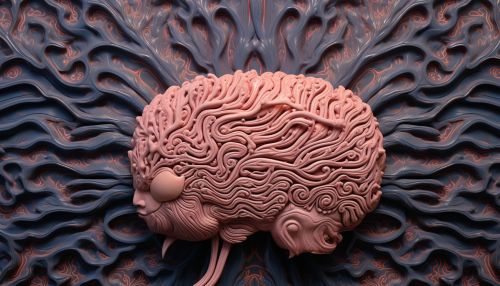Philosophy of Mind
Introduction
The Philosophy of Mind is a branch of philosophy that investigates the nature of the mind and its relationship with the physical body, particularly the brain. It addresses questions related to consciousness, cognition, perception, and mental states, among others, and how these relate to our physical existence and the world around us.


History
The Philosophy of Mind has its roots in ancient philosophy, with philosophers such as Plato and Aristotle pondering questions about the nature of reality, knowledge, and human consciousness. However, it wasn't until the 17th century that the Philosophy of Mind began to emerge as a distinct field, largely due to the work of René Descartes.
Dualism
One of the earliest and most influential theories in the Philosophy of Mind is Dualism, which posits that the mind and body are two fundamentally different types of substances. This view, also known as Cartesian Dualism, was most famously proposed by René Descartes.
Materialism
In contrast to Dualism, Materialism argues that everything that exists is physical, including the mind. This view suggests that mental states are nothing more than physical states of the brain.
Idealism
Idealism, on the other hand, posits that reality is fundamentally mental, not physical. This view suggests that all entities are composed of mind or spirit, not matter.
Behaviorism
Behaviorism is a theory in the Philosophy of Mind that suggests that the mind should be studied through observable behavior, rather than introspection. This view argues that mental states are not inner states of consciousness, but rather behavioral dispositions.
Functionalism
Functionalism is a theory that posits that mental states are not determined by their physical makeup, but rather by their functional role. This view suggests that what makes something a mental state depends not on its internal constitution, but rather on the way it functions, or the role it plays, in the system of which it is a part.
Phenomenology
Phenomenology is a philosophical approach that emphasizes the detailed description of conscious experiences, without theories about their causal explanation and as free as possible from unexamined preconceptions and presuppositions.
Consciousness
Consciousness is one of the most significant areas of study within the Philosophy of Mind. It refers to the state of being aware of and able to think and perceive one's surroundings, thoughts, and feelings.
Cognitive Science
The Philosophy of Mind is closely related to Cognitive Science, which is an interdisciplinary field that studies the mind and its processes, including consciousness, perception, thinking, and learning.
Artificial Intelligence
The Philosophy of Mind also has implications for the field of Artificial Intelligence. It raises questions about whether machines can truly have minds or consciousness, and what that would mean for our understanding of what it means to be human.
